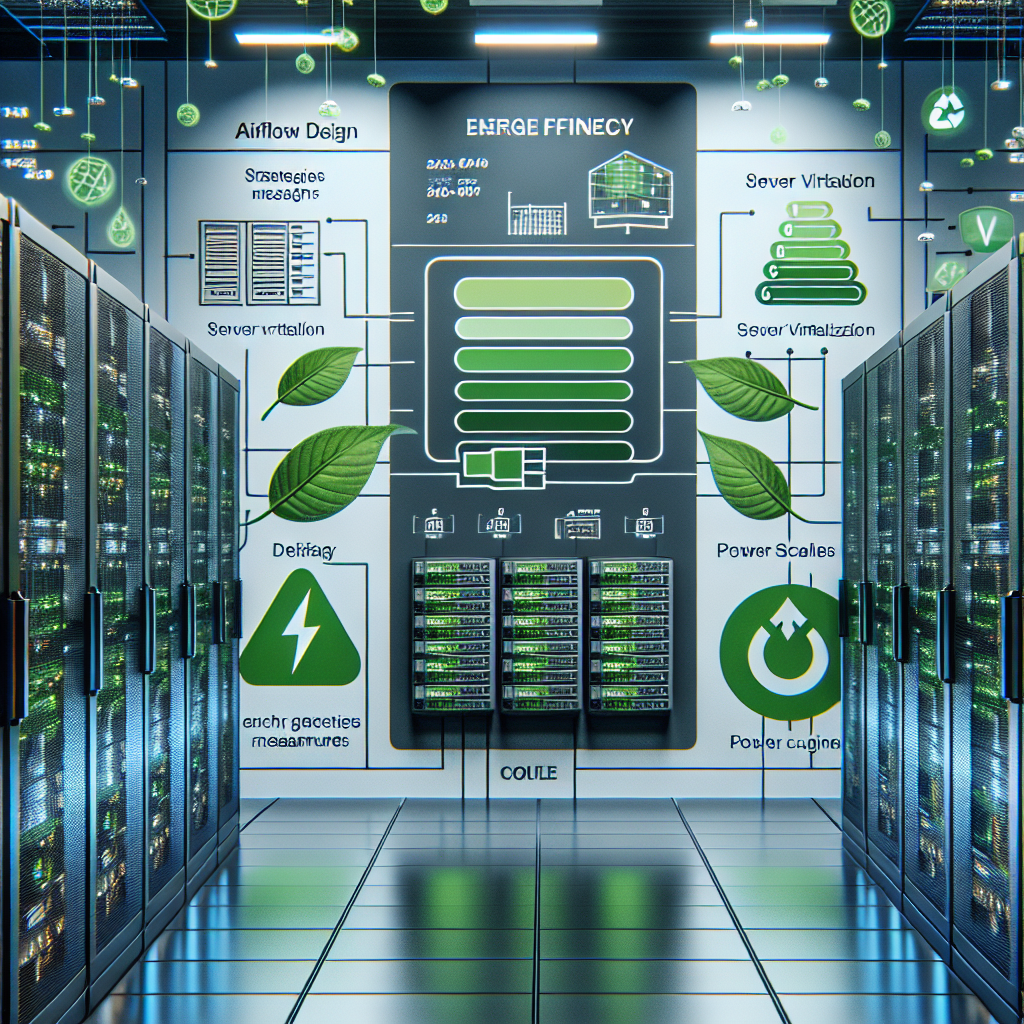Maximizing Data Center Energy Efficiency: Best Practices and Strategies
In today’s digital age, data centers play a crucial role in storing and processing vast amounts of information for businesses and organizations. With the increasing demand for data storage, data centers are consuming more energy than ever before. In fact, data centers are known to be one of the largest consumers of electricity in the world. As a result, maximizing energy efficiency in data centers has become a top priority for many organizations.
There are several best practices and strategies that can be implemented to maximize data center energy efficiency. By following these practices, organizations can not only reduce their energy consumption and carbon footprint but also lower their operational costs.
One of the key strategies for maximizing data center energy efficiency is to optimize cooling systems. Cooling systems are essential for maintaining the optimal temperature within the data center to ensure that servers and other equipment operate efficiently. By implementing efficient cooling systems, organizations can reduce energy consumption and lower cooling costs. This can be achieved by utilizing hot and cold aisle containment systems, implementing economizer cooling systems, and using energy-efficient cooling technologies such as chilled water systems and precision air conditioning units.
Another important best practice for maximizing data center energy efficiency is to implement virtualization. Virtualization allows organizations to consolidate multiple physical servers onto a single server, reducing the overall number of servers required and decreasing energy consumption. By virtualizing servers, organizations can increase resource utilization, reduce power consumption, and lower cooling requirements.
In addition to optimizing cooling systems and implementing virtualization, organizations can also maximize data center energy efficiency by conducting regular energy audits. Energy audits involve analyzing the energy consumption of the data center and identifying areas where energy efficiency can be improved. By conducting energy audits, organizations can identify energy-saving opportunities, implement energy-efficient technologies, and monitor energy usage to ensure that data center operations remain efficient.
Furthermore, organizations can maximize data center energy efficiency by implementing energy-efficient hardware and equipment. Investing in energy-efficient servers, storage devices, and networking equipment can significantly reduce energy consumption and operational costs. Additionally, organizations can also consider using renewable energy sources such as solar or wind power to power their data centers, further reducing their carbon footprint.
Overall, maximizing data center energy efficiency requires a combination of best practices and strategies. By optimizing cooling systems, implementing virtualization, conducting energy audits, and investing in energy-efficient hardware, organizations can reduce energy consumption, lower operational costs, and contribute to a more sustainable future. As the demand for data storage continues to grow, it is essential for organizations to prioritize energy efficiency in their data center operations.


